Eurovision quest to bring home the crown to Kentish Town started… right here
Pre-contest party is held at Outernet
Friday, 21st April 2023 — By Anna Lamche
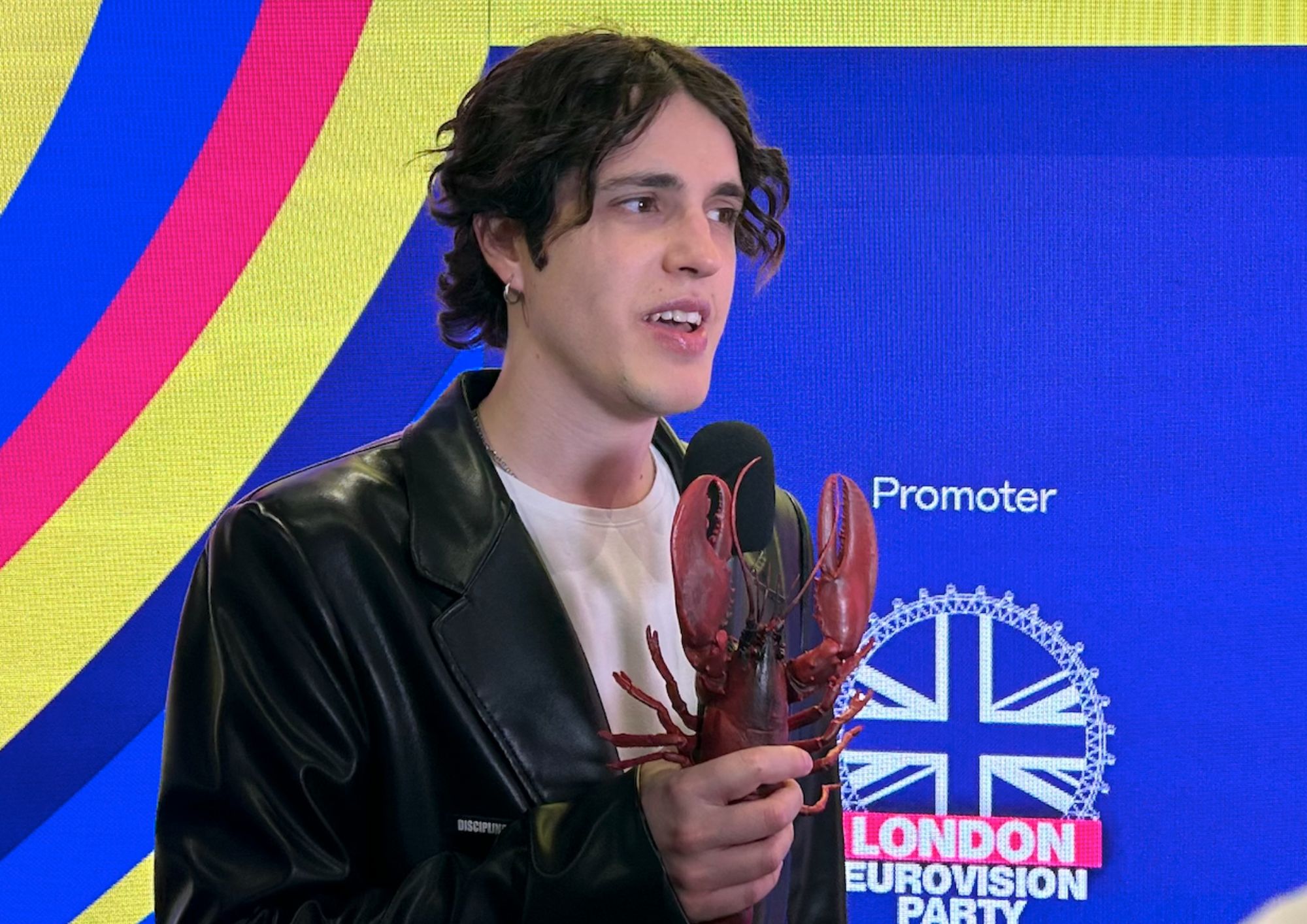
Serbia’s entrant with a lobster
With UK Eurovision hope Mae Muller hailing from Kentish Town, we sent our assistant editor Anna Lamche to watch the show roll into town ahead of next month’s final
FOR the uninitiated, watching the wave of Eurovision fever sweep across the continent in the lead-up to the song contest can feel like observing a phenomenon from another planet.
It works like this: ahead of the final in Liverpool next month, the performers descend on a series of European capitals as part of a season of Eurovision “pre-parties”, the media circus faithfully in tow.
In the middle of it all this year is the UK’s entrant Mae Muller, a singer from Kentish Town who went to Acland Burghley, and her disco number I Wrote A Song.
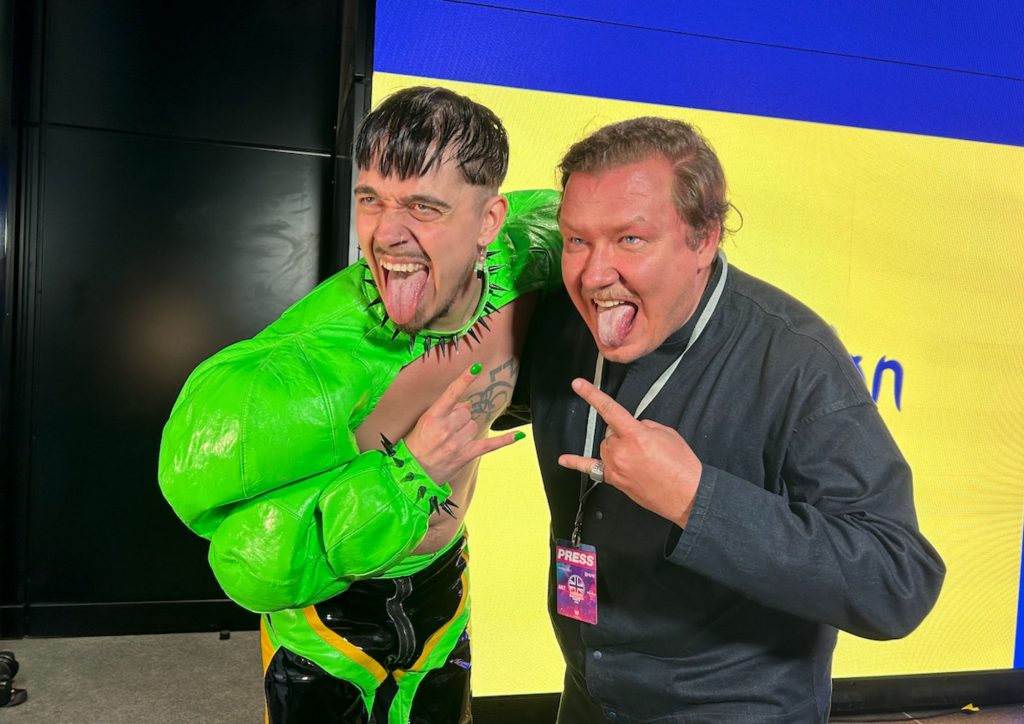
Finland’s Käärijä poses for a photo
In the hours before the party begins, performers past and present do the rounds, pausing for photographs – one held a lobster aloft (more on that in a moment) – and interviews and performing snippets of songs a cappella for a pack of waiting journalists.
On Sunday, it was London’s turn to host the Europop jamboree at Outernet, the flashy new subterranean venue beside Tottenham Court Road tube, where the devoted fans of this annual institution queued outside.
It is all a spectacle: the unspoken task of the contestants is to simultaneously dramatise something about their own country’s identity, and a European identity common to us all.
Since being selected, Ms Muller had been pursued by the press for her opinions as expressed in old tweets – and subjected to endless analyses as to the raunchiness of her latest outfit.
Shaun Bonney, who had travelled to London from Surrey to support Mae at the party, told me: “I Wrote A Song isn’t a political song itself. Everyone has political beliefs, and just because she’s representing us as a country doesn’t mean [those beliefs] don’t exist, and it doesn’t mean that she shouldn’t be allowed to say them.”

The Busker is representing Malta this year
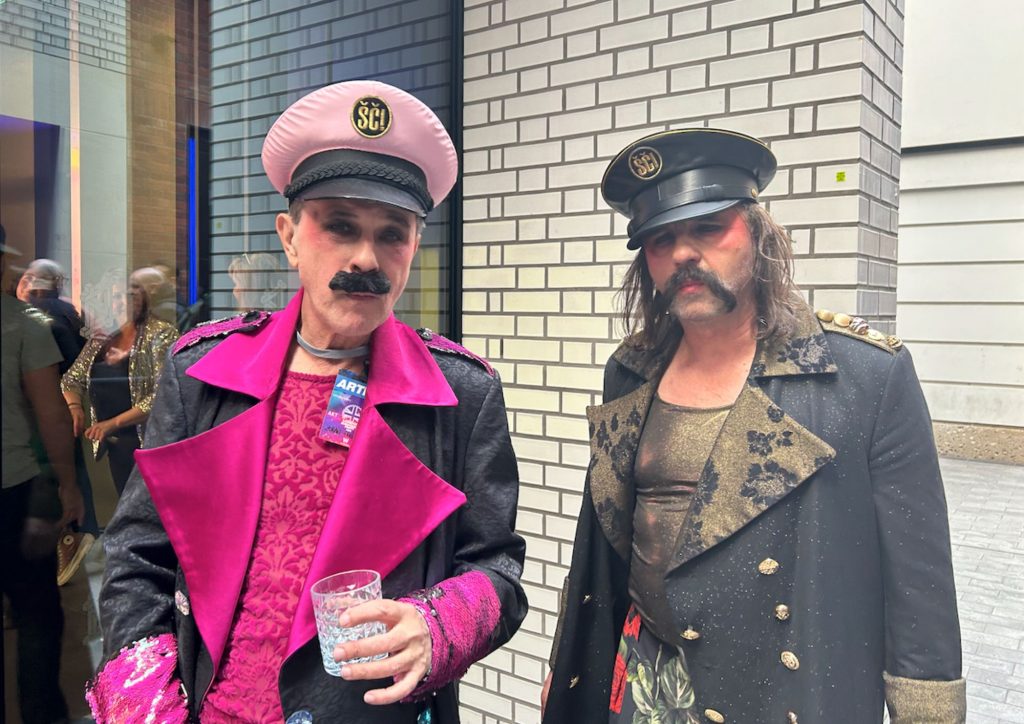
Croatia’s Let 3
History tells us that Eurovision has never been a politics-free zone.
Established in 1956, shortly after the Second World War, the song contest was originally conceived as cultural means of binding disparate nations together, promoting peace and stability.
For many years the European Broadcasting Union, which runs the contest, attempted to keep out of politics.
But it always had a way of creeping back in. So following the invasion of Ukraine, the EBU bowed to pressure from its members, and Russia was banned from participating in the contest.
Meanwhile, last year Kalush Orchestra, the act representing Ukraine, asserted its country’s cultural and social differences from Russia by weaving traditional Ukrainian folk elements into their act, going on to win the event.
The UK is only hosting the competition in 2023 because the Russian invasion of Ukraine rages on, making it impossible for them to stage it this time, as is the tradition.
As Ms Muller put it, “it’s Ukraine’s party, we’re just hosting it at our house”.
At Outernet, an array of acts in flamboyant dress come and go. Serbia’s wears a leather suit and carries the aforementioned toy lobster claiming it is in honour of Salvador Dalí and Surrealism with little further explanation offered.

Romania’s Theodor Andrei
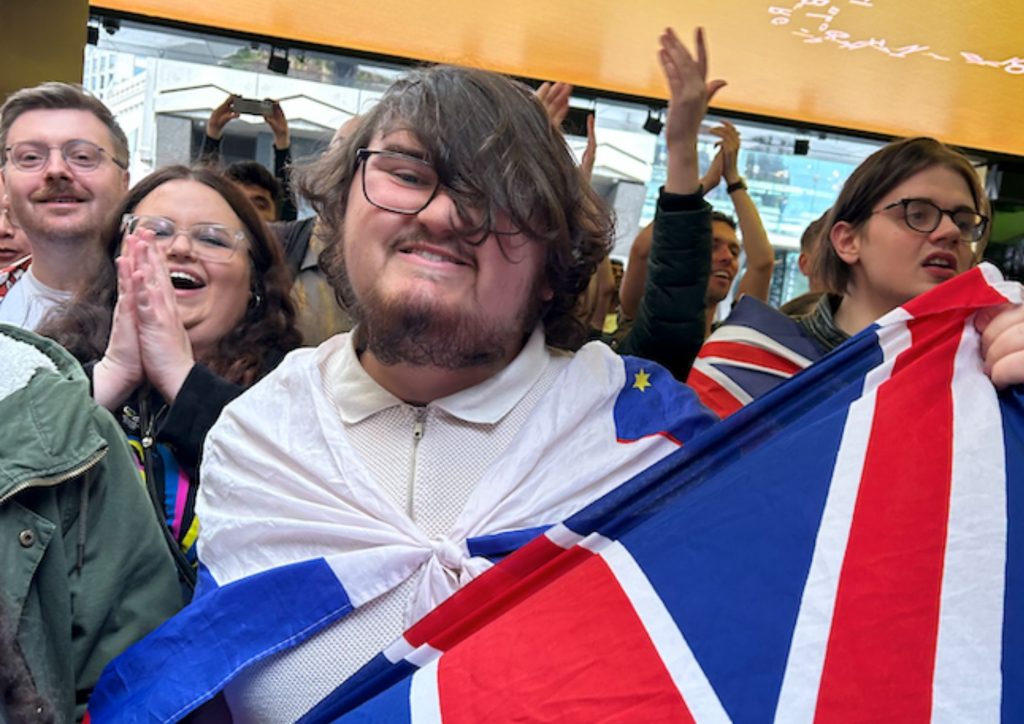
Mae Muller fan Shaun Bonney
Finland sports neon green patent-leather puff sleeves that fasten at his neck and leave his chest exposed.
Two hours pass, and then three, and there is no sign of the elusive Ms Muller.
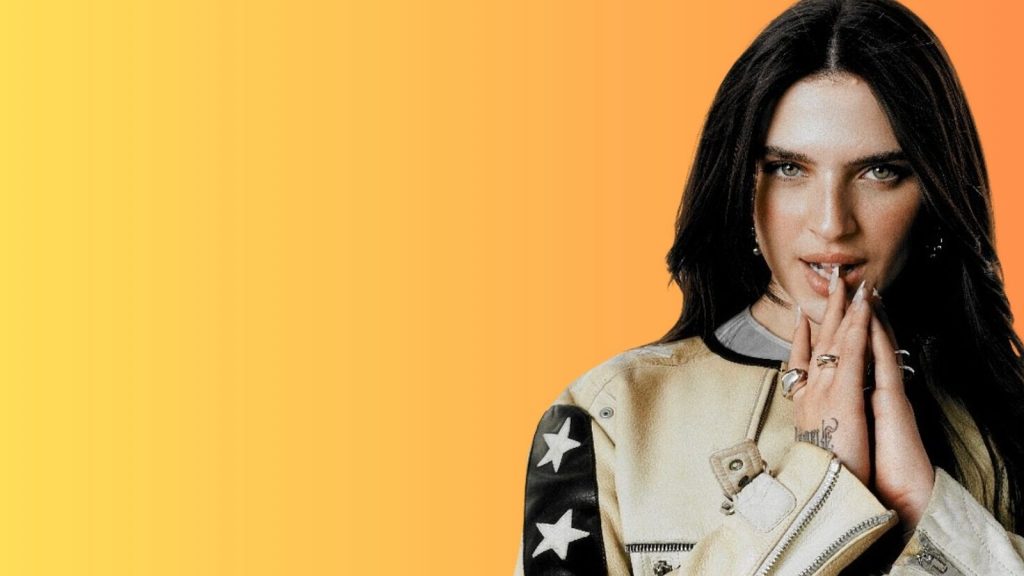
Mae Muller hails from Kentish Town
Perhaps wisely, she took a raincheck on this curious parade, but she did arrive in time to perform.
Sweden’s Loreen, widely tipped by the bookies to win, was there to explain the essence of Eurovision though.
“For me, the performance is about us,” she said. “If you look at the world, there’s a lot of negativity. But one thing you need to understand is the medicine for negativity is creativity.”
She’s right.
Against a backdrop of war, the climate crisis and cost of living pain, there is a “lot of negativity” in the world.
If you’re willing and able to laugh – and dance – along, maybe Eurovision could be a welcome distraction.